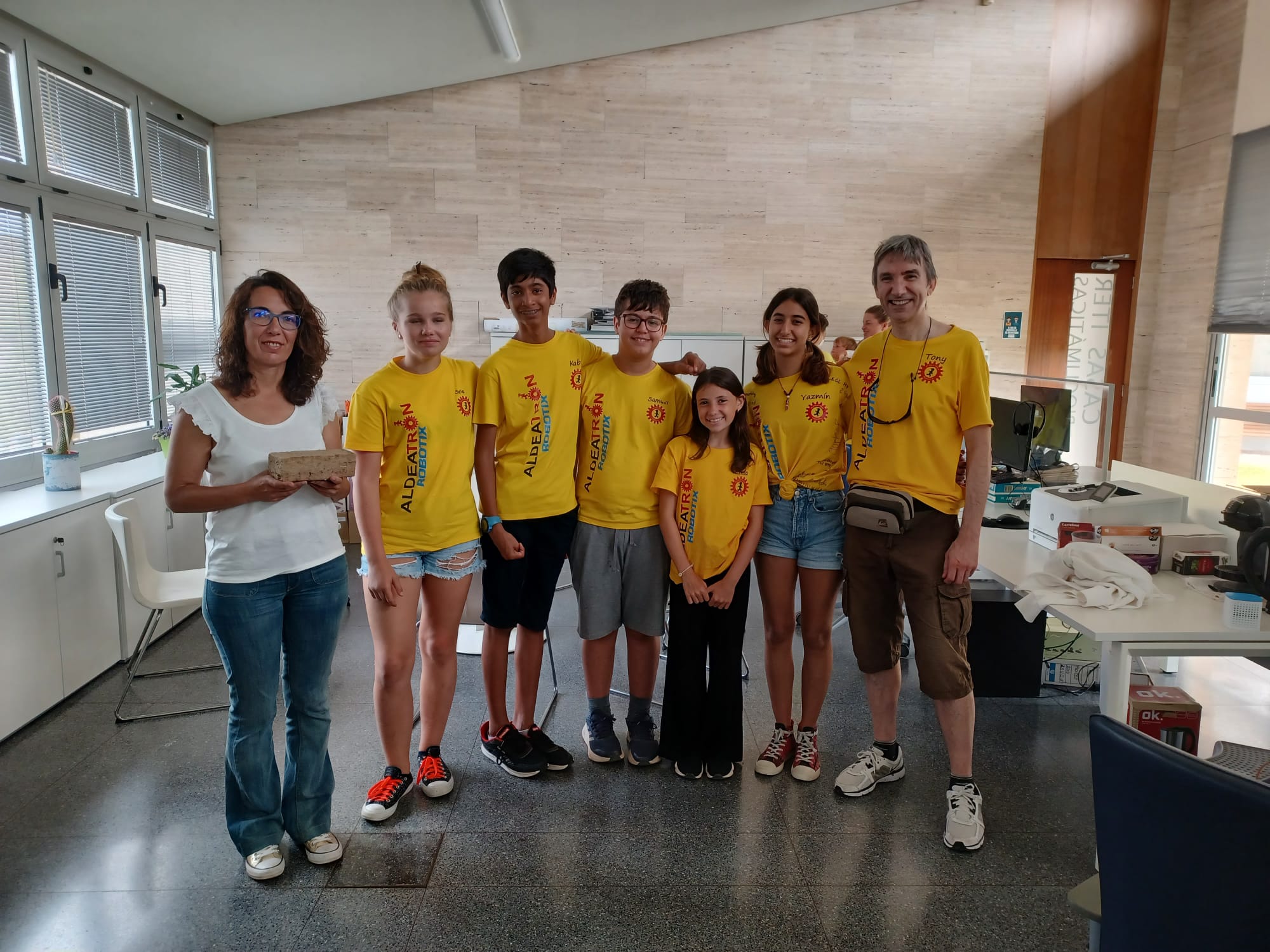
ITER will study the energy efficiency of the artisanal block walls created by Aldeatrón Robotik
The first actions foreseen within the framework of the collaboration agreement signed between the Institute of Technology and Renewable Energies (ITER) and the Aldeatrón Robotik group begun in September. These actions aim to promote the development of sustainable constructions on the island, as well as the continuous training of students.
This collaboration is framed within the activities regarding R&D results transfer and synergies establishment with other R&D centers and groups of the MACLAB-PV project. This project is co-financed by the European Interreg MAC Program 2014 – 2020 aimed at strengthening R&D&I infrastructures and capacities in the renewable energy and energy efficiency sectors in the Canary Islands and Senegal, improving its international competitiveness and its usefulness for public authorities and the productive fabric.
As an alternative to the concrete block, very in the Islands since its industrialization began, Aldeatrón Robotik proposes an innovative solution: the ‘E = Wall’, a new sustainable construction block, manufactured with local cardboard waste and plants (such as cat’s tail, an invasive species that threatens the Canarian ecosystems).
ITER will participate in the testing phase of this project, winner of the Global Innovation Award 2020 within the international FIRST LEGO League programme, which now is working its way to come to life.
Specifically, ITER’s Sustainable Architecture Department will study the energy efficiency of the artisanal block walls created by Aldeatrón Robotik. The samples received from E=Wall will be subject of different tests in the laboratory and under outdoor weather conditions, to later compare the results with those obtained from conventional models of vertical enclosure of vibrated concrete block (BHV).
ITER has extensive experience in residential models that combine different bioclimatic strategies, in the definition of design patterns for the optimization of energy consumption and in the monitoring of environmental parameters. In addition, ITER counts with the Living Lab CB ITER, is a full-scale bioclimatic laboratory with 24 accommodation units that make up the sustainable accommodation ITER Bioclimatic Houses, which has established itself as one of the largest reference laboratories for the analysis of sustainable construction solutions with parameters of real use linked to the sustainable tourism sector.
Aldeatron Robotix, is a family team made up of young people from South Tenerife, led by Tony Cuesta, teacher of Educational Robotics, who for eleven years has participated in the FIRST LEGO League (FLL).
FLL is a project that promotes scientific-technological vocations among young people, a strategy followed by the Cabildo de Tenerife, through INtech Tenerife, as one of the fundamental pillars to diversify the economy on the island towards innovation and the knowledge society. The main objective of this international event is to help young people between 10 and 16 years old to deepen the development of scientific projects, robot game and poster of values designed to solve real life problems.
